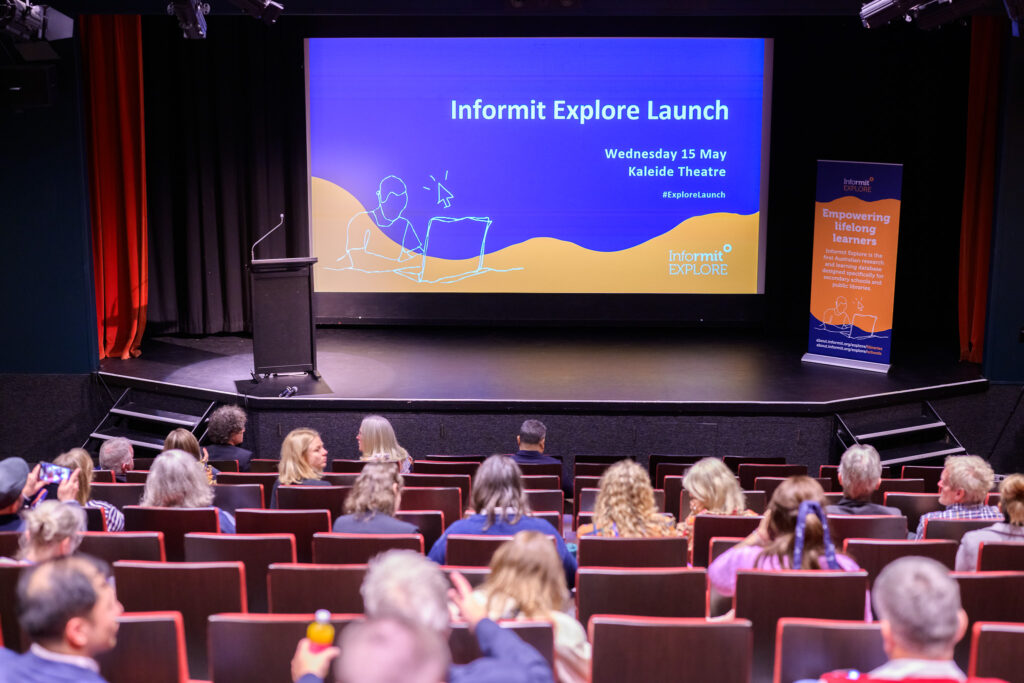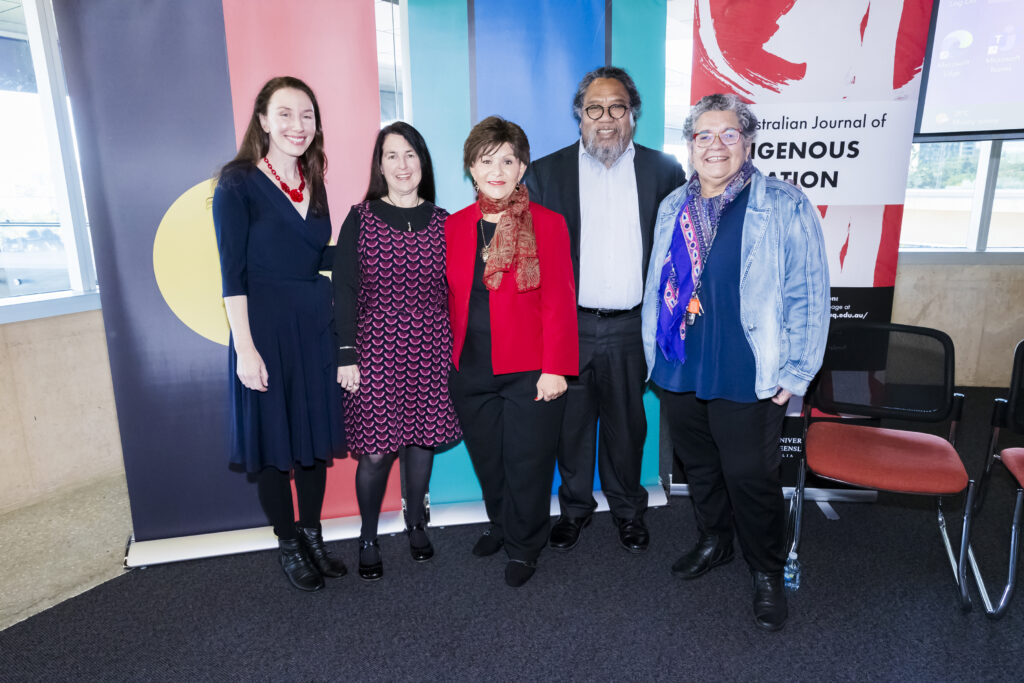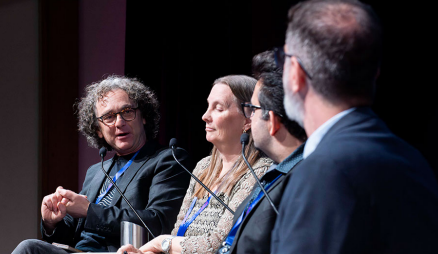
Over 200 representatives of the publishing, research, and information industries attended Kummargii Yulendji Symposium last week, both online and in-person, to engage in meaningful discussions about the ways we describe, apply, and amplify Aboriginal and Torres Strait Islander academic outputs.

Co-convened by Informit and CAVAL and included in the program for Social Sciences Week, the symposium was opened by Professor Gary Thomas, RMIT’s Pro Vice Chancellor Indigenous Education, Research and Engagement, with his keynote: The Art of Show & Tell – Voices in Context.
Professor Thomas spoke about RMIT’s approach to Responsible Practice in Indigenous-led research and the importance of moving beyond transactional exchanges, to responsible and respectful relationships.
‘This symposium is an example of practicing responsibly – where you are asked to consider what the opportunities and responsibilities are in this space in relation to Indigenous scholarship, knowledges and communities.’ Professor Thomas said.
‘There’s an opportunity through the work of CAVAL and Informit in bringing industry, the Academy, and practitioners together to raise the level of awareness and increase the information literacy of the broader community in relation to the classification of Indigenous scholarship.’

The second keynote speaker was Assistant Professor Stacy Allison-Cassin from the Department of Information Science at Dalhousie University, who joined the event virtually from Kjipuktuk (Halifax), Canada.
Assistant Professor Allison-Cassin’s presentation was chaired by Professor Lisa Given and covered the varied landscapes of Indigenous-focused descriptive work in Canada. Similarly to Professor Thomas, Assistant Professor Allison-Cassin asked the important question: what are our responsibilities to the stories and knowledges we manage? She provided examples of Canadian projects that aim to challenge problematic descriptions and classifications, offering Australian delegates a comparative perspective for similar projects in their respective fields.

To explore the Australian context further, the audience enjoyed a panel discussion on The Guidelines for Descriptions of First Nations Collections, from Michelle Rusiniak, The University of Melbourne, Anthony McLaughlin, AIATSIS and Tui Raven, Creative Director and Cultural Advisor. The discussion posed a provocation: ‘If not you, then who?’
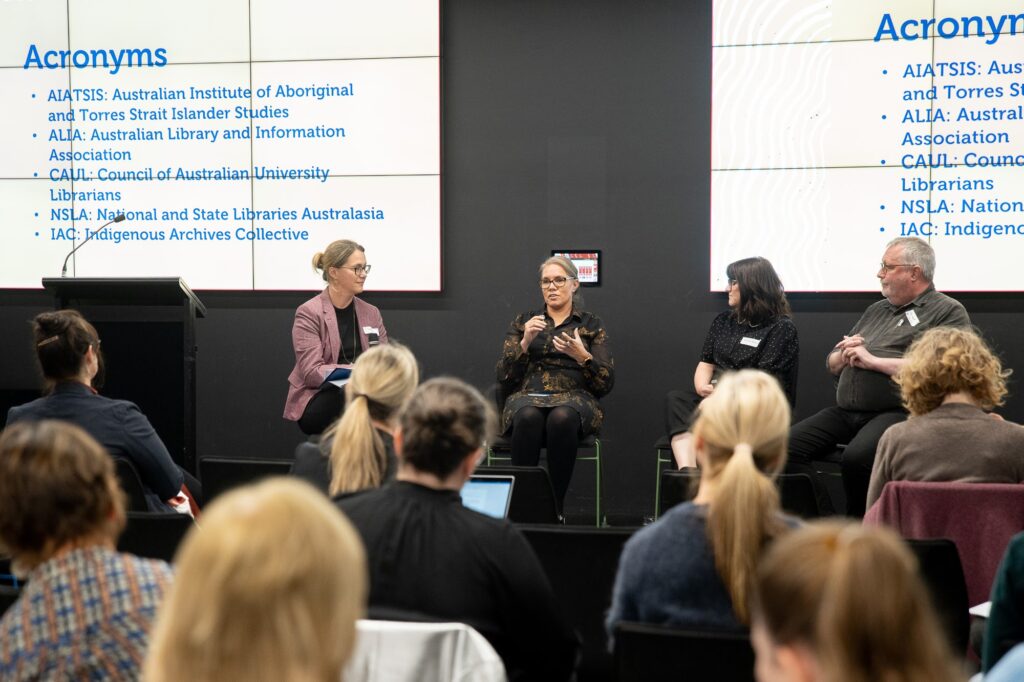
Dr Kirsten Thorpe, Dr Shannon Faulkhead, and Lauren Booker from the Indigenous Archives Collective presented: The Indigenous Referencing Guidance for Indigenous Knowledges: A Toolkit, a referencing guide tailored for undergraduate students. The Collective emphasised that these conversations have been underway for two decades and there is now an upwelling of interest that should catalyse change.
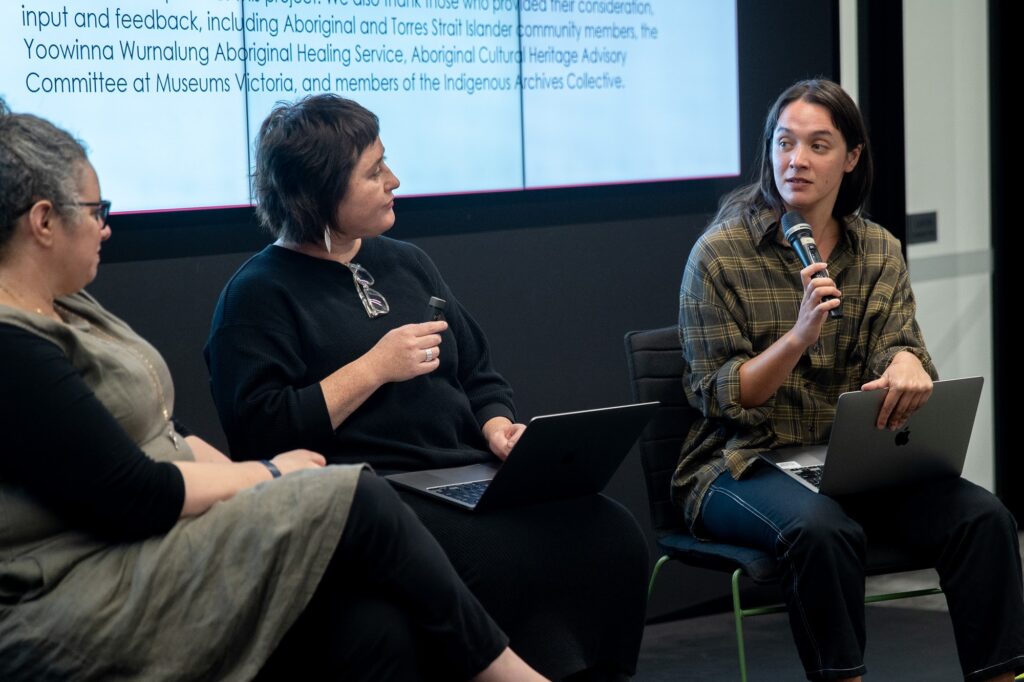
Jill Benn, Chair of the Council of Australian University Librarians (CAUL), and University Librarian of the University of Western Australia, wrapped up the hybrid component of the event, by presenting the CAUL Strategic Program: From Decolonisation to Indigenisation. As a descendant of the Noongar Ballardong people, Jill shared her own personal journey with collections, and the role that university libraries can take in continually improving cultural safety of the archive and celebrating Indigenous excellence.
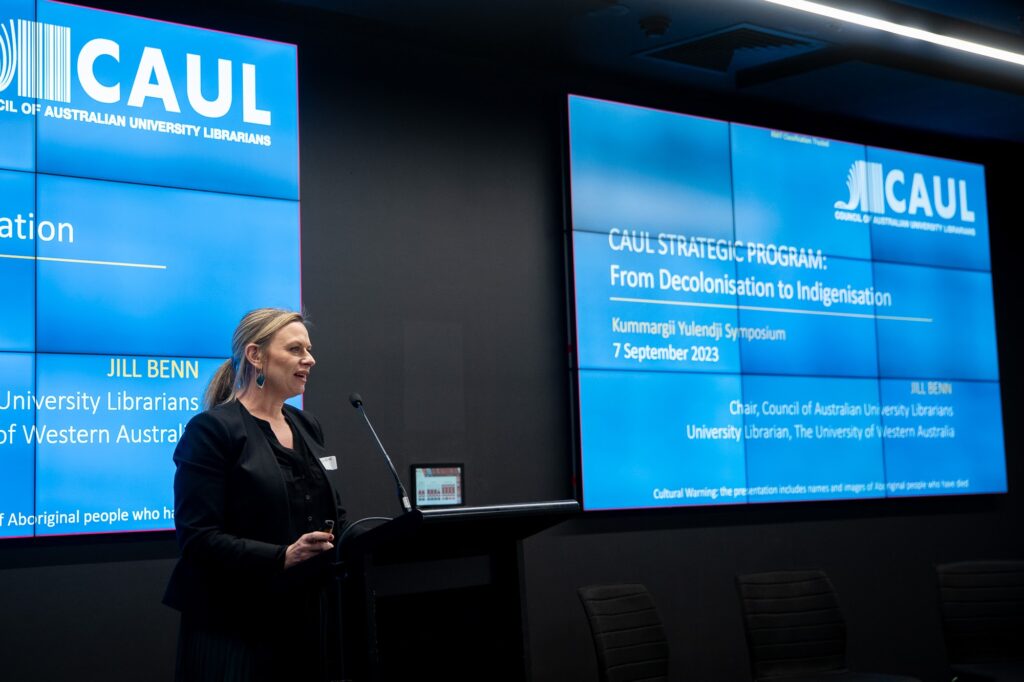
The in-person event culminated with interactive roundtable discussions on the topics: Describe, Apply and Amplify, emphasising the commitment of those participating to turn these conversations into actions. These sessions were chaired expertly by: Professor Lisa Given, Dr Sarah Polkinghorne, Sae Ra Germaine and Niki Ebacioni.


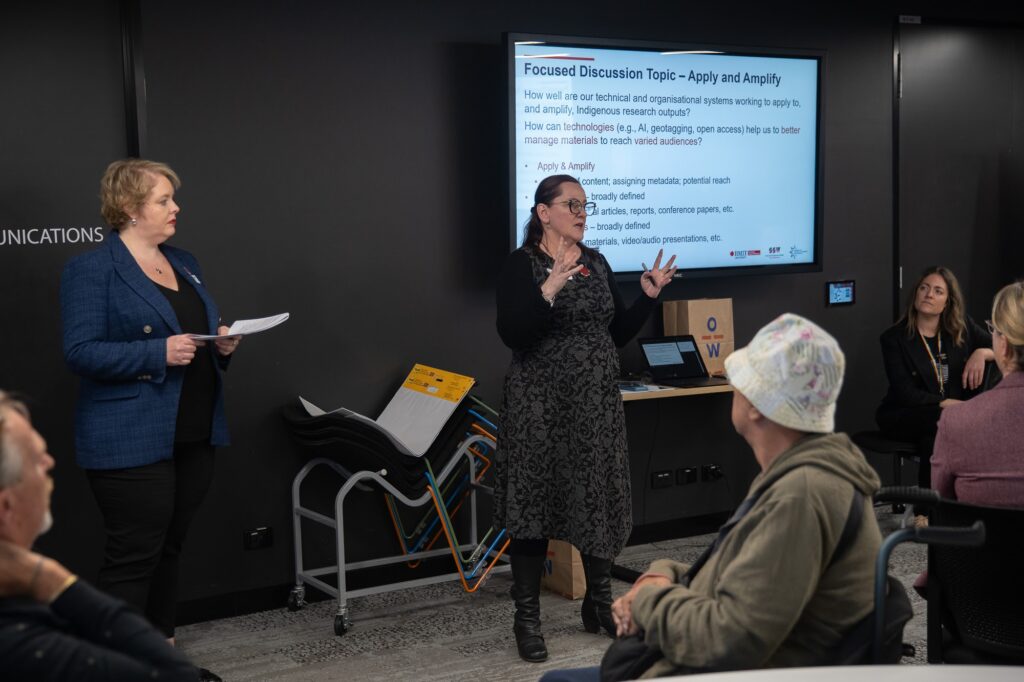
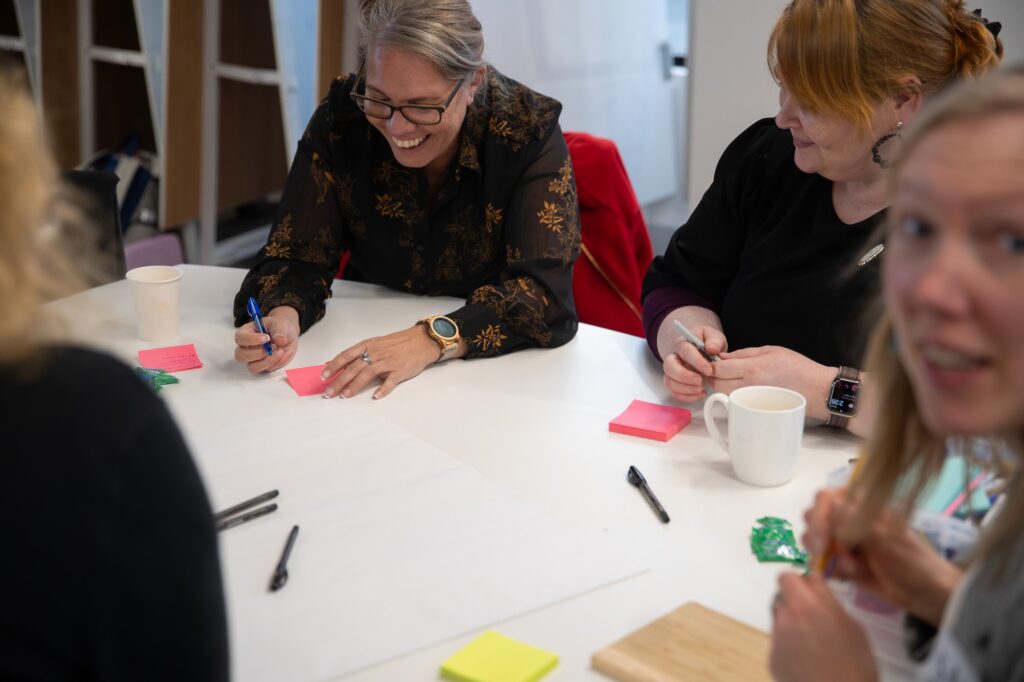
Informit’s hope is that the impact of Kummargii Yulendji Symposium extends beyond the event itself, and that the discussions sparked in the room continue to shape and inform revised approaches moving forward.
‘We see Kummargii Yulendji Symposium as a very promising starting point towards creating inclusive systems that appropriately and effectively platform First Nations knowledge,’ Informit’s Director, Emma Juniper said.
‘We thank CAVAL for co-convening this event with us, the RMIT Enabling Impact Platform, Social Change, for supporting the event and all the speakers who generously shared their expertise. This symposium is one of a suite of initiatives that Informit is implementing to embed Indigenous perspectives within its platform. The recent exponential increase in academic research being undertaken by Indigenous scholars is one of the most exciting developments in Australian research today and Informit is well placed to amplify these achievements.’
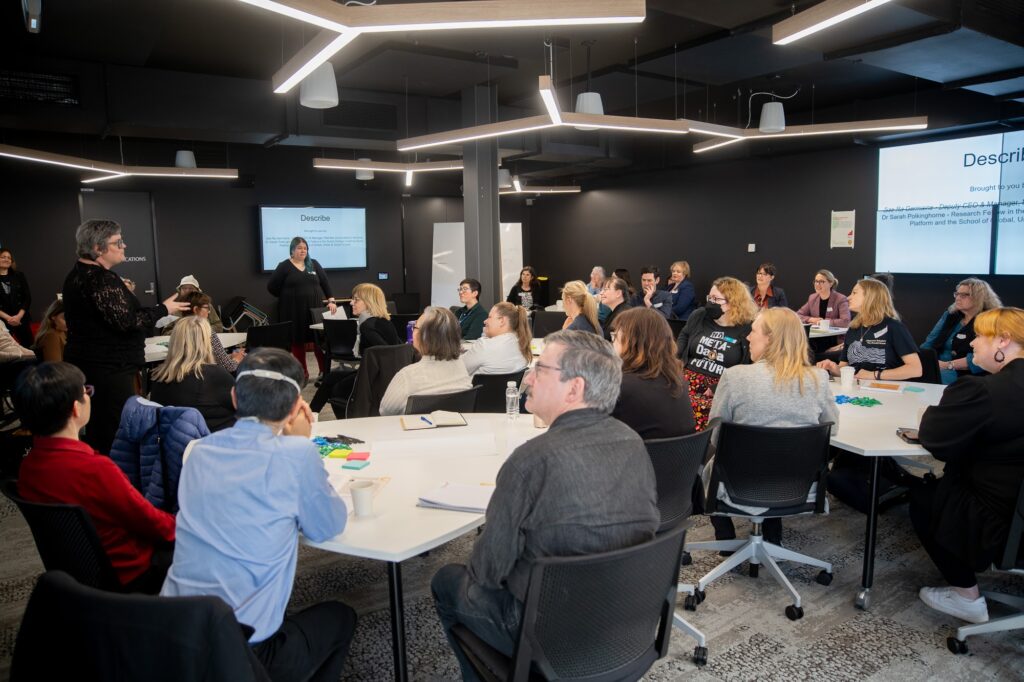
Kummargii Yulendji means ‘Knowledge is Rising’, and was named by Boon wurrung elder N’arwee’t Professor Carolyn Briggs AM.
